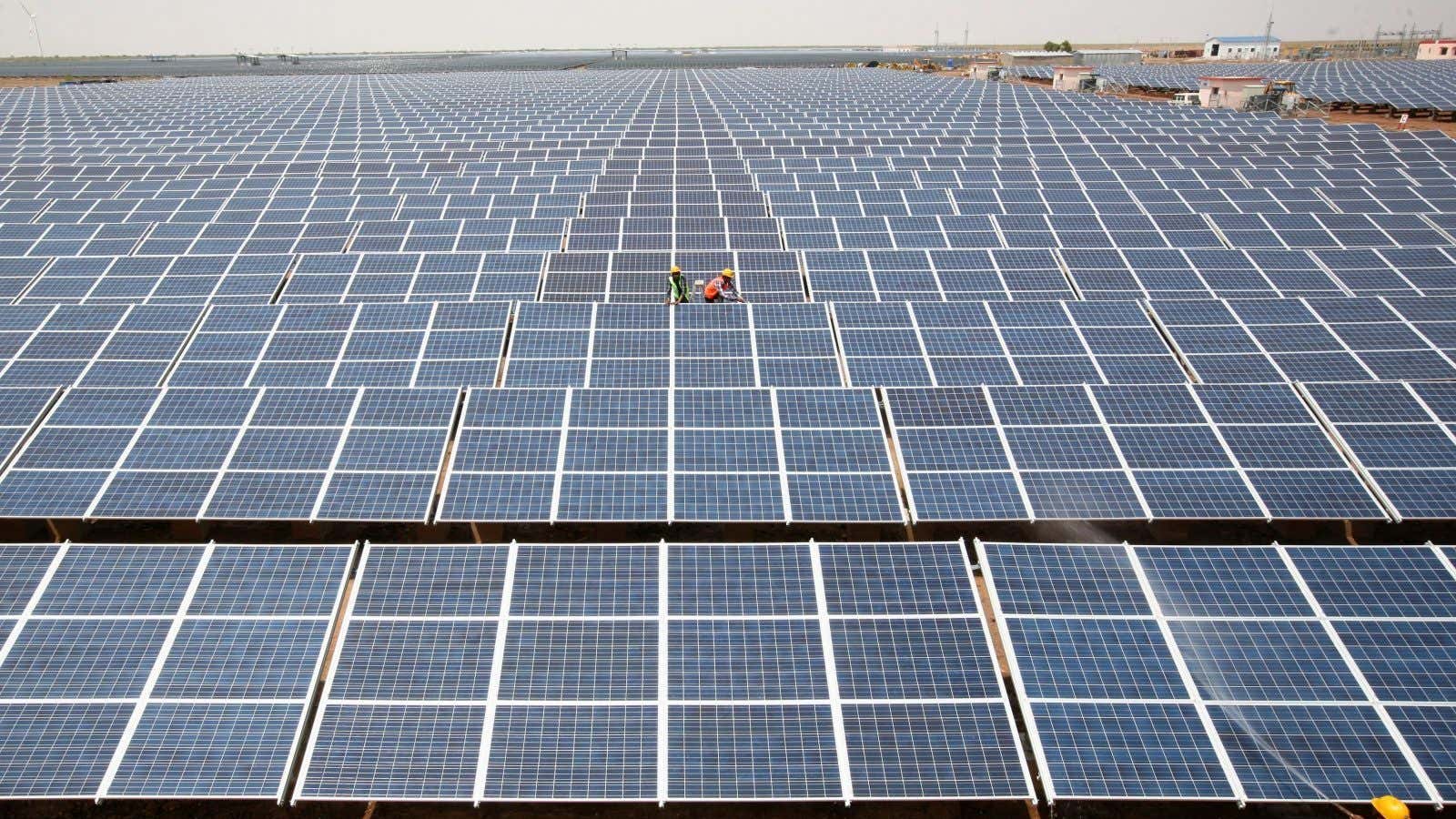Goldman Sachs-backed ReNew Power has acquired three-year-old Ostro Energy to create the country’s largest clean energy firm by installed capacity.
In what is the biggest ever deal in the Indian renewable energy sector, ReNew Power will spend Rs10,000 crore (approximately $1.5 billion) for the acquisition, backed by Rs1,643 crore ($247 million) from the Canada Pension Plan Investment Board (CPPIB). Ostro Energy’s 1,100 megawatt (MW) of capacity is spread across Andhra Pradesh, Karnataka, Telangana, Rajasthan, Madhya Pradesh, and Gujarat.
“With the acquisition of these assets, ReNew Power’s capacity will now exceed 5,600 MW,” the company said in a statement (pdf). “Over 65% of the combined portfolio capacity (ReNew Power and Ostro Energy) is already operational.”
This deal could be the first in a wave of consolidation India’s renewable sector is likely to witness this year. The main triggers are the sharp decrease in clean energy tariffs and the consequent fall in the internal rate of return (IRR)—the yield an investor gets on his investment.
“Consolidation is inevitable. Companies like ReNew Power will strengthen their portfolio as they have shown that their assets are good…and have been able to attract foreign money,” Amit Kumar, a partner at consulting firm PwC who focuses on renewables, told Quartz.
Tumult and consolidation
Despite being dogged by multiple issues, the Indian clean energy sector has seen its solar and wind energy tariffs spiral down to record lows over the last year. The troubles include policy uncertainty, a fall in energy demand, and rising solar-panel prices.
Nonetheless, in May 2017, solar energy tariffs fell to Rs2.44 per unit of power; wind power hit a low of Rs2.43 per unit in December 2017.
And now, companies that have a lower cost of debt and strong funding from international investors will take the lead in the consolidation, analysts say. ReNew Power is among the frontrunners. Besides Goldman Sachs, it is backed by the CPPIB, and JERA, a joint venture between Japan’s largest utility, Tokyo Electric Power Company, and Chubu Electric Power Company.
Consolidation will help bring down the cost of procuring equipment, besides that of operating and maintaining plants.
“With IRRs falling, most new projects are sustainable only with players who have a lower cost of debt and innovative financing,” said Ankur Agarwal, a senior analyst with India Ratings and Research. “What we will have now is two or three domestic players.”
Meanwhile, smaller companies that can’t compete with larger ones like Tata Power or ReNew Power are looking to exit the space anyway, analysts said. “Those who have up to 50MW or 100MW kind of assets…it might be difficult for them to acquire new assets, considering the kind of bidding that is happening,” Kumar of PwC said.
More than just improved profitability, such consolidation will have an overall positive impact on the renewable energy sector in India. “(Consolidation) will bring you some efficiencies along with more serious players with more clout who are able to better handle (the uncertainties in the sector),” Agarwal said.
